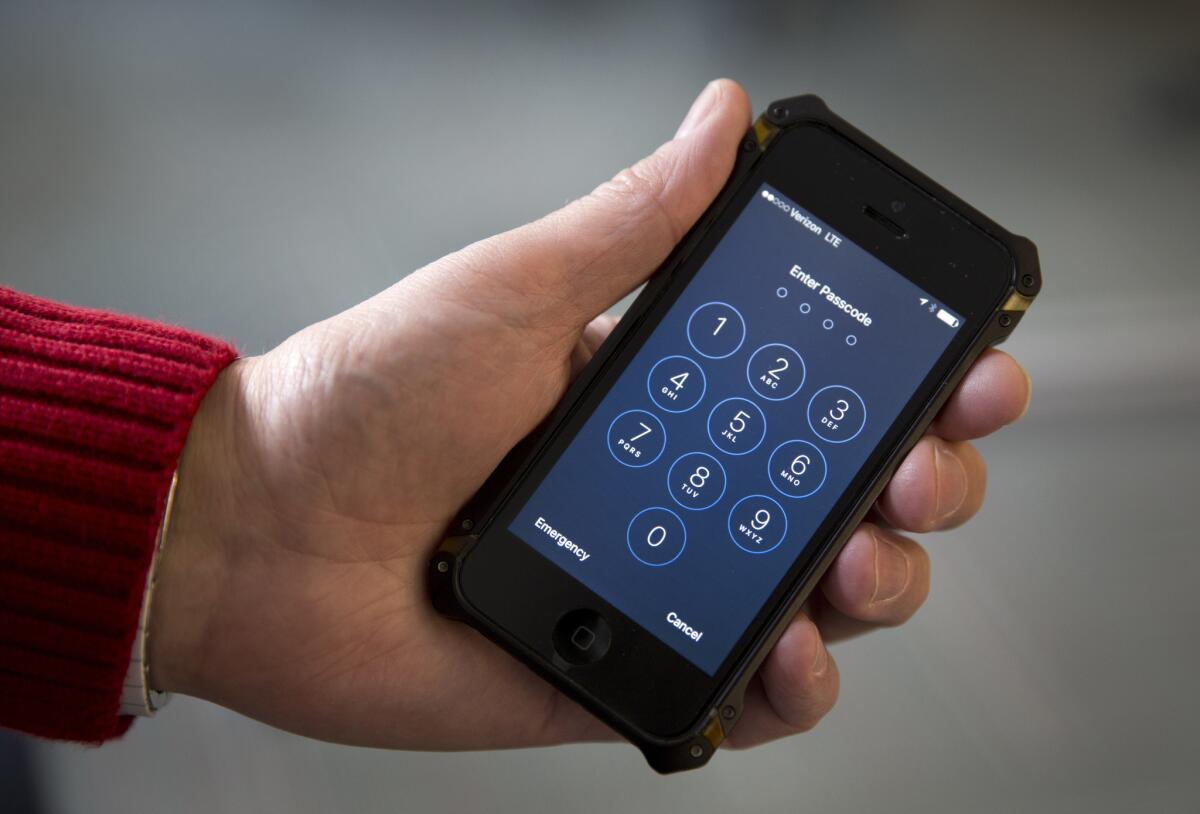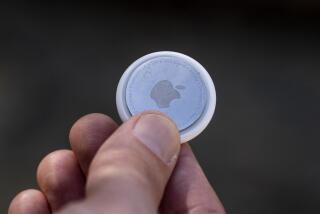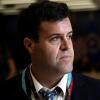Federal prosecutors drop effort to get into New York drug dealer’s iPhone

The Justice Department said it will no longer try to compel Apple to open an iPhone in a New York drug case because it was given the passcode.
The Justice Department said Friday it was withdrawing its request to compel Apple to open an iPhone in a New York drug case because an unidentified individual supplied federal agents with its passcode.
It is the second time in a month that federal prosecutors have dropped a case seeking to unlock one of Apple’s signature smartphones.
The decision by federal prosecutors to drop the case will likely not end its high-stakes standoff with Apple. The Justice Department is seeking to compel Apple to unlock at least a dozen other such devices in cases across the country.
The Justice Department last month abandoned a similar effort to force Apple to help it unlock and bypass the strong encryption on an iPhone used by Syed Rizwan Farook, who along with his wife, Tashfeen Malik, launched a Dec. 2 attack in San Bernardino that left 14 dead and many others wounded. In that instance, the FBI said it only managed to access the phone after paying an unidentified third party at least $1.2 million to bypass its security features.
The New York case involved an iPhone using an older operating system without such encryption. In fact, when presented with similar court orders, Apple unlocked dozens such phones and last year even provided agents with technical language necessary to obtain a search warrant seeking its assistance in opening the New York drug defendant’s device.
A federal magistrate judge, however, thought the Justice Department might be going too far in using an 18th century law, known as the All Writs Act, to have the Cupertino-based company unlock the phone and asked the company to weigh in. Apple, despite having unlocked dozens of other phones, agreed that the government was overstepping its bounds.
On Feb. 29, Magistrate Judge James Orenstein ruled in Apple’s favor and blocked the Justice Department from compelling the firm to open the phone.
The Justice Department asked another federal judge, Margo K. Brodie, to review Orenstein’s ruling and had been expected to file court papers rebutting Apple’s arguments that the FBI had failed to take the necessary steps to unlock the phone before seeking an order to compel the company to do so.
“Before the government demands that Apple do the work of law enforcement, the government must offer evidence that it has performed an ‘exhaustive search’ and that it remains unable to obtain the data it seeks without Apple’s assistance,” the company argued in court papers.
In a sharp and somewhat ironic reversal, the government filed papers Friday telling Brodie that it was withdrawing its request because federal agents had indeed discovered a way to access the phone without the company’s help.
“Yesterday evening, an individual provided the passcode to the iPhone at issue in this case,” federal prosecutors wrote. “Late last night, the government used that passcode by hand and gained access to the iPhone. Accordingly, the government no longer needs Apple’s assistance to unlock the iPhone, and withdraws its application.”
The iPhone belongs to Jun Feng of Queens. Feng pleaded guilty in October to conspiring to distribute methamphetamine and is scheduled to be sentenced in June.
ALSO
Troubled Army blimp program faces deep funding cut
Lawsuit against two former contractors may shed light on CIA’s use of torture
L.A. County sheriff’s deputy acquitted of felony assaults, convicted of misdemeanors
More to Read
Start your day right
Sign up for Essential California for news, features and recommendations from the L.A. Times and beyond in your inbox six days a week.
You may occasionally receive promotional content from the Los Angeles Times.







